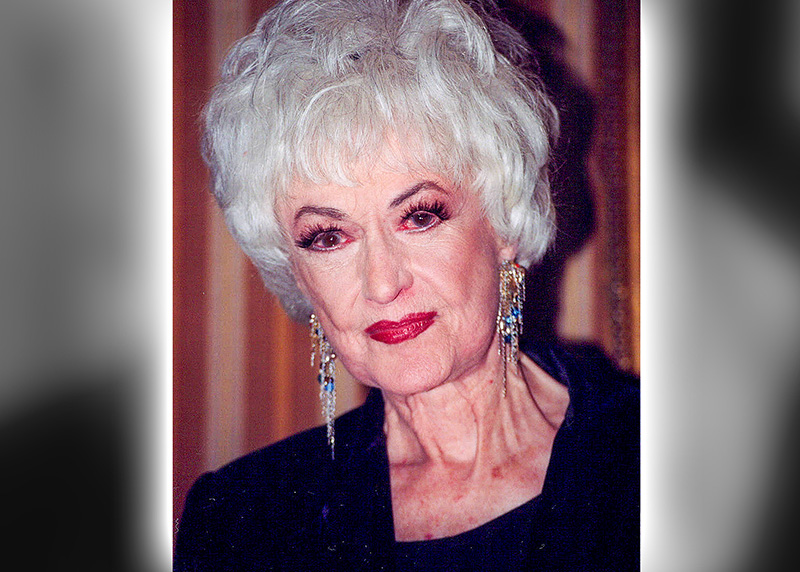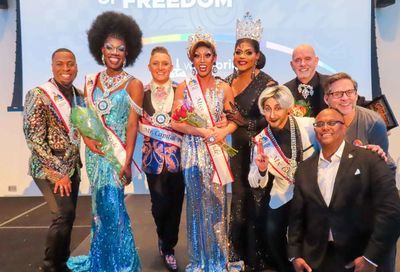Texas allows social workers to turn away LGBTQ people
Rule hollows out nondiscrimination protections in the Texas State Board of Social Work Examiners' code of conduct

Texas has approved a rule allowing social workers to turn away LGBTQ people and people with disabilities.
Last week, the Texas State Board of Social Work Examiners voted unanimously to change a section of its code of conduct to provide an exemption that would allow social workers to refuse to serve clients based on their personal opposition to homosexuality or transgenderism.
Under the previous code of conduct, social workers were prevented from discriminating against specific groups of people based on personal characteristics, such as a person’s sexual orientation, gender identity, or disability.
Gov. Greg Abbott’s office pushed for the change, arguing that the previous code of conduct did not provide sufficient protections for social workers with sincerely-held religious beliefs.
A spokesperson for Abbott defended the decision to push for the exemption, citing a law that gave the governor’s office more control over rules governing state-licensed professions, report the Texas Tribune.
Alice Bradford, the board’s executive director, said she received an email from the governor’s staff recommending the change three days before the vote, which occurred during an online meeting between the social work board and the Texas Behavioral Health Executive Council.
Darrel Spinks, the council’s executive director, told the Tribune that he had sought out an “informal” opinion from the office of Texas Attorney General Ken Paxton, who, like Abbott, has a history of opposing LGBTQ rights and supporting religious exemptions. Attorneys working for the attorney general’s office agreed that the governor’s request was justified.
The change in the code of conduct’s nondiscrimination policy has since been criticized by professional groups. Will Francis, the executive director of the Texas chapter of the National Association of Social Workers, called it “incredibly disheartening,” while accusing Abbott of failing to consult social workers when crafting the policy.
He added that the board’s decision creates the impression that people with disabilities can be discriminated against despite federal rules that are in place to protect them.
“It’s disturbing, even if it’s unintentional,” Francis told Dallas-based NBC affiliate KXAS-TV. “They created space for people to get the impression that this is allowed now. What the governor has done is put people with disabilities at risk for discrimination for no reason.”
See also: Congressional Republicans introduce watered-down “fairness” bill with a host of religious exemptions
Austin-based social worker Tracy Abzug told board members following the vote that she found it “disturbing” that the board had agreed “to lower our standards as it relates to discrimination towards sexual orientation and gender identity.”
Gloria Canseco, an Abbott appointee who is also CEO of the San Antonio Christian Dental Clinic and is the wife of former U.S. Rep. Quico Canseco (R-Texas), told Abzug that the council would address “the issue of gender” — including, ostensibly, gender identity — at its next meeting on Oct. 27. But she did not say whether the board would revisit the topic of protections for sexual orientation or people with disabilities.
Seven civil rights advocacy groups, including Equality Texas, Transgender Education Network of Texas and Texas Freedom Network, released a joint statement Thursday accusing Abbott of pushing through a controversial policy that even the conservative Republican-run state legislature refused to pass.
“Pro-discrimination groups couldn’t get this passed into law, but Gov. Abbott has done their bidding by pushing it through administratively in an obscure meeting when he thought few people were watching,” Texas Freedom Network President Kathy Miller said in the statement.
Steven Parks, a social worker in private practice in Houston who works with child trauma victims, called the change to the code of conduct “both a professional and personal gut punch.” He added that the exemption would have a negative impact on LGBTQ individuals or other marginalized groups in rural areas, where there are fewer social workers and mental health professionals.
“There’s research to show that members of the queer community … are at higher risk for trauma, higher risk for all sorts of mental health conditions,” he said.
Support Metro Weekly’s Journalism
These are challenging times for news organizations. And yet it’s crucial we stay active and provide vital resources and information to both our local readers and the world. So won’t you please take a moment and consider supporting Metro Weekly with a membership? For as little as $5 a month, you can help ensure Metro Weekly magazine and MetroWeekly.com remain free, viable resources as we provide the best, most diverse, culturally-resonant LGBTQ coverage in both the D.C. region and around the world. Memberships come with exclusive perks and discounts, your own personal digital delivery of each week’s magazine (and an archive), access to our Member's Lounge when it launches this fall, and exclusive members-only items like Metro Weekly Membership Mugs and Tote Bags! Check out all our membership levels here and please join us today!
























You must be logged in to post a comment.